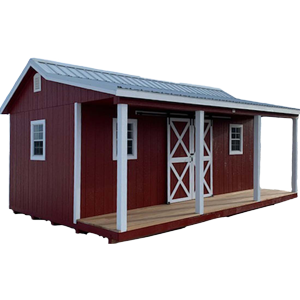Nutrition to Socialization: Best Practices for Raising Happy Chickens
by Dakota Storage Buildings, on April 03, 2024
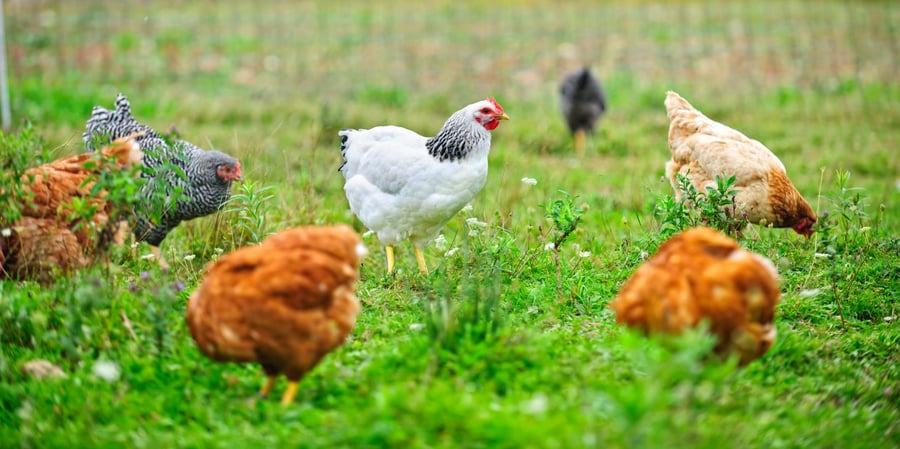
Raising chickens is not just a hobby; it is an engaging and fulfilling journey that offers numerous benefits. The superior taste of fresh eggs from your hens is just one of the rewards. Chickens also contribute significantly to your garden's health by naturally controlling pests and fertilizing your soil, making them valuable partners for gardeners. However, it is essential to approach chicken keeping with a realistic understanding of the responsibilities involved. Happy chickens can live for several years and require ongoing care that includes daily feeding and watering to ensure they have a safe, comfortable environment protected from predators and extreme weather conditions. Those who embark on this adventure with a clear understanding of the commitment involved will find it an immensely rewarding experience.
Chicken Keeping Success
Before you start raising chicken, it is essential to conduct thorough research to select a breed that aligns with your specific climate conditions and lifestyle. Chickens come in a wide array of breeds, each boasting its own set of characteristics, needs, and preferences. These can range from breeds like the Plymouth Rock or Buff Orpington, which thrive in cooler climates, to breeds such as the Leghorn or Rhode Island Red which are more suited to warmer areas. Understanding these nuances is crucial in ensuring your chickens lead comfortable, healthy lives.
You will also need to consider the temperament and productivity of different breeds. Some chickens are known for their submissive and friendly nature, making them excellent choices for families with children, while others might be more independent and less inclined to human interaction. Egg color and production rates also vary among breeds, from the prolific egg-laying of White Leghorns to the more modest output of Silkies. Aligning your expectations with the capabilities of your chosen breed will lead to a more satisfying chicken-keeping experience.
The physical setup of your backyard plays a pivotal role in the well-being of your flock. Adequate space for a coop and an attached run is crucial, allowing your chickens the freedom to move, forage, and express natural behaviors. This space should not only accommodate the chickens comfortably but also provide protection from predators such as foxes, raccoons, and birds of prey. Predator-proofing measures, including secure fencing, covered runs, and sturdy coop construction, are non-negotiable for safeguarding your flock. Incorporating nest boxes within the coop is another essential element, facilitating egg laying in a safe and comfortable environment.
Tailoring Nutrition for Every Stage of Chicken Life
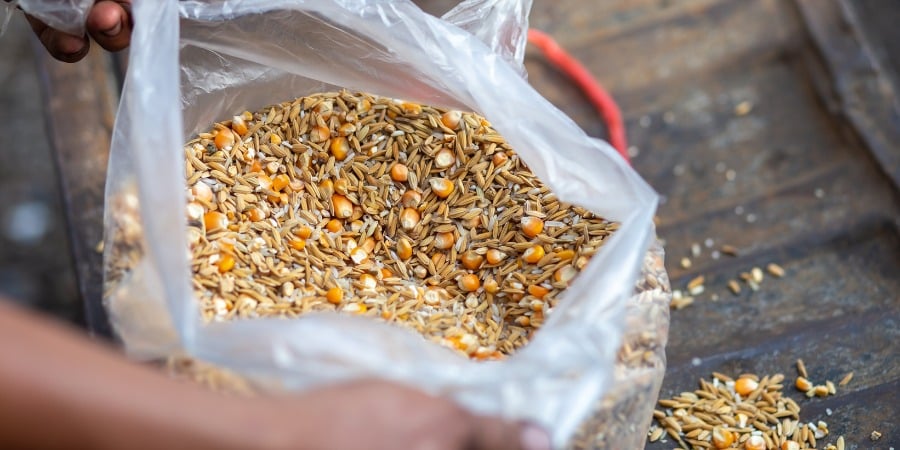
A well-balanced diet, full of essential nutrients such as proteins, amino acids, vitamins, enzymes, and fiber, is the foundation of good poultry health. These nutrients are not just beneficial but necessary for their growth, egg production, and overall vitality. Incorporating medicated feeds that are infused with medications to help prevent or treat common internal parasites, can help safeguard the young birds during their most vulnerable initial weeks of life. This proactive approach to health care can significantly reduce mortality rates and set the foundation for a healthy, vigorous flock.
Chickens are inherently omnivorous and capable of eating a wide variety of foods. Their natural diet can include everything from grains and vegetables to insects and small animals, providing them with a rich array of nutrients. However, relying solely on their foraging habits or supplementing their diet with kitchen scraps is not sufficient to meet their nutritional needs. Commercially prepared feeds are scientifically formulated to ensure a complete and balanced diet, eliminating the guesswork for backyard chicken keepers. By providing a balanced, nutrient-rich diet tailored to their life stage, along with clean water and necessary medical care, you can support their growth, productivity, and longevity.
It is important to recognize that the dietary requirements of chickens evolve over their lifespan. For instance, the high protein and specific nutrient profile needed by a growing chick are significantly different from the balanced diet aimed at supporting the egg-laying capabilities of a mature hen. To cater to these varied nutritional demands, it is imperative to provide feed that is specifically formulated for each stage of a chicken's life. Starter feeds are designed for chicks with a higher protein concentration to support their fast growth, while layer feeds contain optimized levels of calcium and other nutrients essential for egg production. This targeted feeding strategy ensures that chickens receive the right balance of nutrients at each stage of their development, promoting optimal health and productivity.
The Essentials of Chicken Coop Maintenance
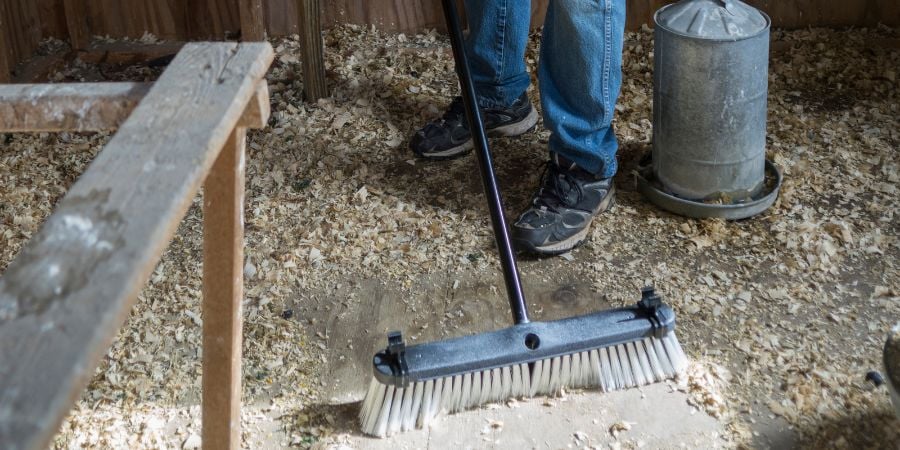
Maintaining a dry and clean coop is absolutely essential for the health and well-being of backyard chickens. The presence of moisture and accumulation of droppings not only create an environment for the growth of harmful bacteria and parasites but can also lead to diseases that affect the respiratory health of your flock. These conditions can compromise the immune system of chickens, making them more susceptible to infections and illnesses that can spread rapidly through the flock. Implementing regular cleaning routines is crucial in preserving a sanitary living environment for your chickens.
Removing droppings and soiled bedding weekly is a critical task that helps prevent the build-up of ammonia and harmful pathogens. This routine should be complemented by bi-annual deep cleans, which involve a thorough scrubbing and disinfection of the coop. During these deep cleans, every nook and cranny of the coop should be addressed to eliminate pests like mites and lice that can infest your chickens and cause them discomfort or illness.
Ventilation is another critical component of a healthy coop environment. Good airflow helps remove moisture, ammonia, and dust, but it is important to achieve a balance that prevents drafts, particularly in colder weather, which can lead to respiratory issues. Strategic placement of vents and windows can facilitate cross-ventilation without creating direct airflows that could chill the chickens. The coop's layout should include space for roosting and nesting, allowing chickens to express their natural behaviors in a clean and safe environment. Roosts should be positioned away from food and water sources to minimize contamination, and nesting boxes should be kept clean and filled with fresh bedding to encourage egg-laying and reduce the risk of egg breakage or contamination.
Keeping Chickens Hydrated and Clean
Hygiene and hydration are critical factors that significantly influence the overall health, productivity, and happiness of your flock. Implementing a robust sanitation program is essential in creating a clean and disease-free environment for your chickens. This includes regular cleaning of the coop, timely removal of waste, and the use of appropriate disinfectants to minimize the risk of infections and parasitic infestations, which can quickly spread if not properly managed.
Hydration, often overlooked, is equally crucial for maintaining a healthy flock. Chickens need constant access to fresh, clean water to stay hydrated and to support their metabolic processes, including digestion and egg production. Water quality is just as important as quantity; ensuring that drinking water is free from contaminants and changed regularly can prevent the development of diseases that thrive in dirty water. During extreme weather conditions — whether it is the scorching heat of summer or the freezing temperatures of winter — monitoring and adjusting water availability and temperature accordingly can help alleviate stress and maintain optimal health.
Addressing these fundamental needs can significantly help prevent common health or behavior issues that can perplex beginner chicken keepers. For instance, a clean living environment reduces the likelihood of respiratory problems, while adequate hydration can prevent heat stress and support proper egg formation. It is also worth noting that a stress-free environment, fostered by clean living conditions and easy access to water, encourages natural behaviors and socialization among chickens, also promoting their well-being.
The Impact of Socialization on Chicken Well-being
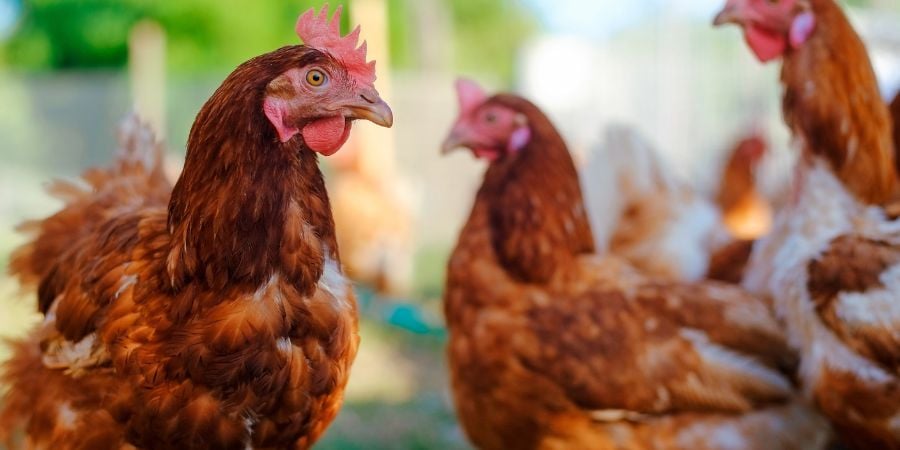
Chickens, by their very nature, are highly social animals that flourish in the presence of other birds. Their social structure is complex and fascinating, with behaviors that include dust bathing, grooming, and sharing nesting spaces, all of which are essential for their well-being. These activities not only help maintain their physical health by keeping their feathers clean and free from parasites, but they also play a crucial role in establishing and reinforcing social bonds within the flock. The social structure of a chicken flock can also mitigate aggressive behaviors by establishing a clear pecking order. While the establishment of this hierarchy can sometimes involve displays of dominance, once settled, it contributes to the overall stability and peace within the group.
Raising chickens in pairs or, ideally, groups of three or more, is not just a matter of preference but a necessity for their social and emotional well-being. Solitary chickens can experience loneliness, stress, and depression, leading to a decline in their overall health and egg production. However, happy chickens who are part of a well-integrated flock are more likely to exhibit natural behaviors, have fewer stress-related issues, and contribute to a more vibrant and pleasant backyard environment. This approach not only ensures the well-being of the chickens but also enriches the experience of keeping them, creating a lively and interactive backyard atmosphere that benefits both the chickens and their keepers.
The Ultimate Guide to Raising Happy Chickens
Raising chickens presents a variety of challenges, ranging from the initial setup of a secure and comfortable coop to understanding the nutritional needs of your flock. However, the rewards that come from chicken keeping significantly overshadow these initial obstacles. Not only do chickens offer a direct connection to a more sustainable and self-sufficient lifestyle through the provision of fresh, nutrient-rich eggs, but they also play a crucial role in natural pest control. Adhering to best practices in chicken care is crucial for ensuring the health and happiness of your flock.
For those considering raising a flock of backyard chickens, knowledge is the first step towards success. Downloading our free resource, “The Beginner's Guide to Getting Backyard Chickens” provides a comprehensive overview of what to expect and how to prepare for your flock. Such resources are invaluable in navigating the early stages of setup and care, offering insights into breed selection, feeding, health care, and more. By committing to the well-being of your chickens through informed practices and attentive care, you pave the way for a successful and deeply satisfying chicken-keeping experience.











